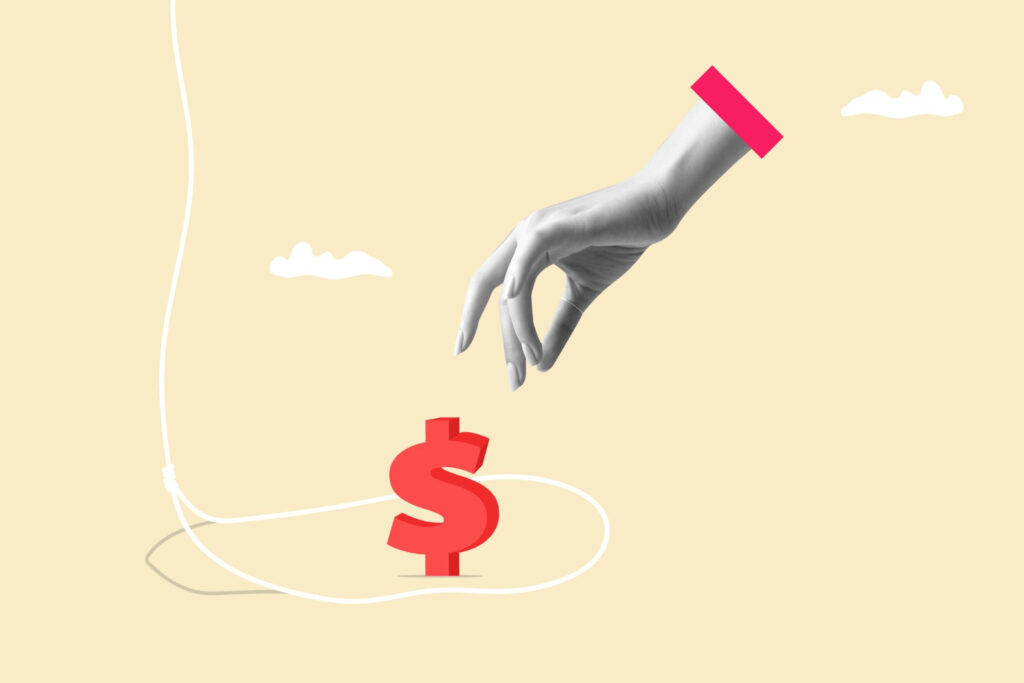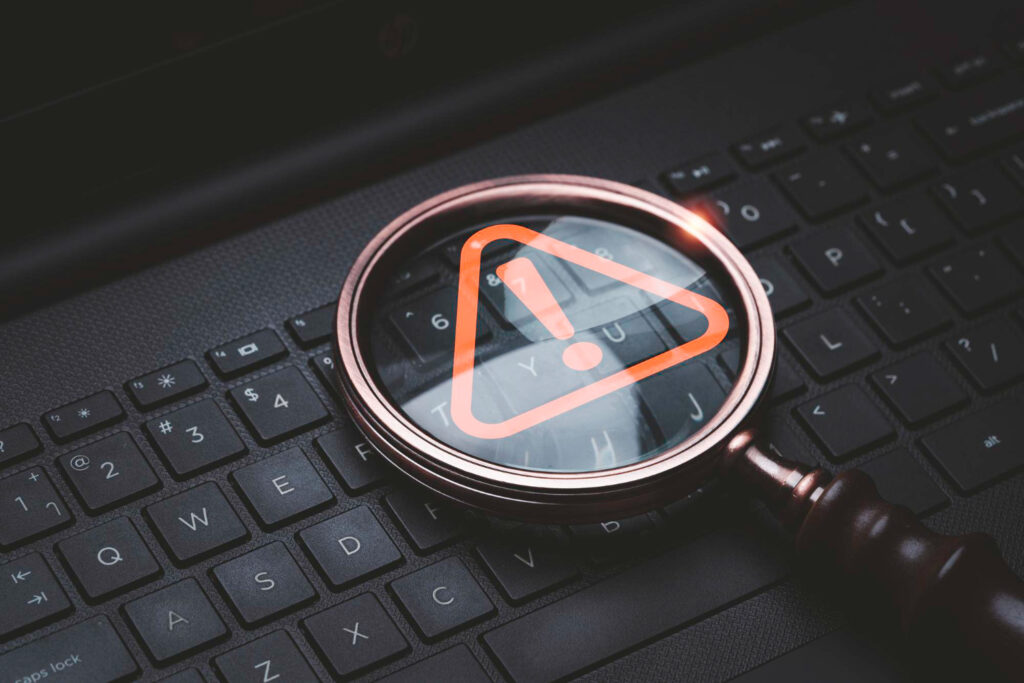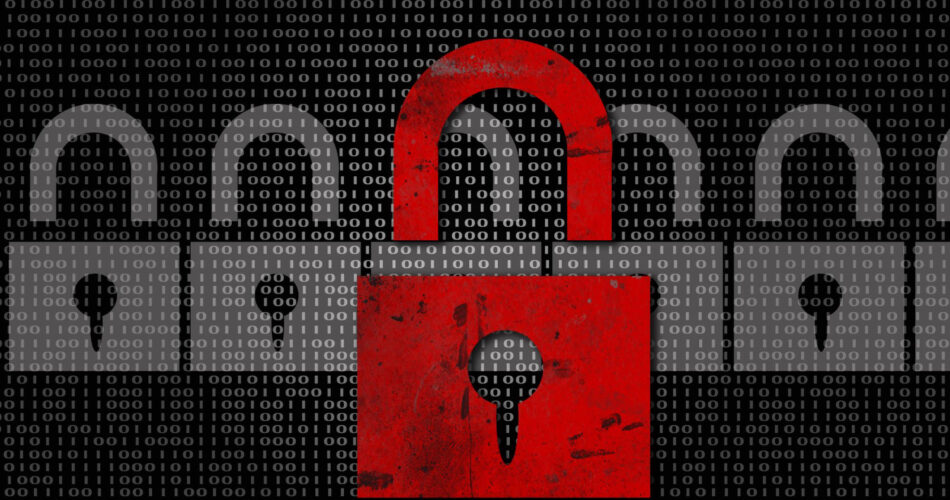As avid participants in the crypto landscape, our experience has been as thrilling as navigating a digital frontier. It’s a journey where every byte and pixel matter, especially when it comes to privacy. For many like us who live and breathe cryptocurrency, VPNs are as crucial as our digital wallets. But what happens when that shield – the VPN, is cracked?
Table of Contents
Cryptocurrencies – More Than Just Digital Gold
Cryptocurrencies, once the domain of tech enthusiasts, have burgeoned into a global phenomenon, reshaping the very fabric of financial systems. But to label them merely as ‘digital gold’ is to skim the surface. Let’s delve deeper into the transformative nature of cryptocurrencies, understanding their evolution, significance, and the pivotal role of privacy within this domain.
Dawn of a Digital Era
The inception of cryptocurrencies, most notably Bitcoin in 2009, heralded a new era in the financial domain. These were not just digital assets; they represented a paradigm shift:
- Decentralization: Cryptocurrencies operate devoid of central authority, making them immune to government interference or manipulation.
- Innovation Wave: Beyond Bitcoin, the crypto space has witnessed the emergence of thousands of coins and tokens, each bringing novel functionalities and use cases.
More than Mere Transactions
While cryptocurrencies can be used for transactions, similar to traditional currencies, their scope extends far beyond:
- Store of Value: Like gold or silver, many view cryptocurrencies, especially Bitcoin, as a store of value, a hedge against economic uncertainties.
- Smart Contracts: Platforms like Ethereum introduced the concept of programmable smart contracts, automating and securing complex processes in immutable code.
- Decentralized Finance (DeFi): Cryptocurrencies have birthed a new financial system, enabling lending, borrowing, and earning interest without traditional intermediaries.
The Quest for Anonymity and Privacy
In a world teeming with surveillance and data breaches, the pseudonymous nature of cryptocurrencies offers a respite:
- Pseudonymity Over Anonymity: While transactions are transparent on the blockchain, they are linked to digital addresses, not directly to personal identities. This pseudonymous system ensures transparency while providing a layer of privacy.
- Privacy Coins: Some cryptocurrencies, like Monero and Zcash, take privacy a notch higher, obfuscating transaction details to ensure complete anonymity.
- But Not Absolute: It’s crucial to understand that while cryptocurrencies offer enhanced privacy, they are not entirely anonymous. With sophisticated tools and techniques, transactions can potentially be traced back to individuals, making tools like VPNs vital for added security.
Cracked VPNs Unmasked
Understanding the Fractures
At its core, a VPN is a robust piece of software designed to provide a protective barrier between your device and potential prying eyes on the internet. When we talk about a cracked VPN, we’re referring to a version of a paid VPN service that has been tampered with, to bypass the payment or registration process, essentially making it “free.” However, this free pass often carries hidden costs.
Defining the Cracked Code
In the digital realm, where codes govern functionality, a single alteration can have cascading effects. A cracked VPN is a result of unauthorized alterations to its original code, done primarily to bypass security checks, licensing verifications, or payment gateways. It’s like buying a branded purse off a street market; it looks authentic, but on closer inspection, the flaws become evident.
The Tampered Blueprint
Just as architects need blueprints to create skyscrapers, software developers rely on intricate codes to develop VPNs. When this blueprint is altered, the structure (in this case, the VPN) becomes unstable. The alterations might disable some safety checks, introduce vulnerabilities, or even embed malicious functionalities within the VPN.
Allure of the Forbidden
It’s human nature to be tempted by shortcuts, especially when they promise cost savings. Cracked VPNs, with their appeal of premium features at zero cost, can seem irresistible. But remember, in the world of software, free doesn’t always mean risk-free. The absence of a price tag often conceals the hidden expenses, from compromised data to potential malware infections.
Spotting the Differences
While genuine and cracked VPNs might seem indistinguishable at first glance, there are subtle signs to watch for:
Origin
A cracked VPN is typically found on unofficial websites or peer-to-peer networks, while genuine versions are available on the official site of the VPN provider.
Updates
Genuine VPNs regularly roll out updates to improve functionality and security. Cracked versions, on the other hand, might lag or not update at all.
Anomalies
Unusual behavior, such as unsolicited ads or unexpected crashes, can be indicative of a cracked VPN.
In today’s digital age, the allure of ‘free’ is often magnetic. From apps to services, the promise of zero-cost offerings can be tantalizing, especially when budgets are tight. Cracked VPNs, dangling the bait of premium services without the expense, can seem like a boon. But like many things in life, if it sounds too good to be true, it often is. Let’s pull back the curtain and reveal the actual costs of such ‘free’ solutions.
Unmasking the True Price of ‘Free’

The Illusion of Savings
On the surface, a cracked VPN presents a simple value proposition: the benefits of a premium VPN without the associated costs. However, this apparent saving is often a mirage, obscuring hidden expenses.
- Compromised Security: The direct consequence of using a cracked VPN is the heightened risk to your digital assets, especially cryptocurrencies. The cost of a potential breach far outweighs any monetary savings.
- Lost Time & Productivity: Frequent disconnections, sluggish speeds, and troubleshooting issues with cracked VPNs can translate to hours of lost productivity.
Trading Data for Services
In the digital ecosystem, data is a valuable commodity. ‘Free’ often means you’re trading something else in exchange, usually your data.
- Monetizing User Data: Some cracked VPNs might log and sell your browsing habits to advertisers. While you aren’t paying with money, you’re paying with your privacy.
- Targeted Ad Assault: With your data sold to the highest bidder, you become the target of relentless targeted advertising. Your online experience gets inundated with ads, diminishing the browsing experience’s quality.
The Hidden Malware Price Tag
Bundled within the attractive package of a cracked VPN, malware waits, poised to strike. This covert software can wreak havoc:
- Device Degradation: Some malware strains can significantly slow down your device, affecting performance and lifespan.
- Ransom Demands: Ransomware, a type of malware, can lock you out of your device or encrypt your files, demanding payment for release. The financial implications, coupled with data loss, can be devastating.
Ethical & Reputational Costs
Beyond tangible losses, using cracked software carries an ethical weight:
- Supporting Unethical Practices: Downloading and using cracked software indirectly promotes and supports hacking and other unethical practices.
- Reputational Risks: For professionals or businesses, using cracked software can severely tarnish reputation if discovered. Trust, once lost, is challenging to regain.
The Legal Tightrope
Cracked software isn’t merely an ethical gray area; it treads a fine line legally:
- Copyright Violations: Using cracked VPNs can infringe on copyrights, opening users up to potential legal consequences.
- Jurisdictional Traps: Depending on your country or region, the use of cracked software can carry hefty fines or even jail time.
Risks that Lurk in the Shadows

The allure of cracked VPNs might be difficult to resist for many, especially with the promise of premium services without the price tag. However, the hidden dangers these cracked services pose can have profound and often irreversible consequences, especially in the realm of cryptocurrencies.
1. Malware: The Silent Predator
The very process of cracking a VPN involves tampering with its original software. Such tampering can often lead to malicious software being embedded within the VPN application.
Chart: Malware Types & Their Potential Impacts
| Malware Type | Function | Potential Impact on Crypto Activities |
|---|---|---|
| Trojan | Disguises itself as legitimate software and delivers malware | Direct theft of cryptocurrencies from wallets or keystroke logging |
| Keylogger | Records keystrokes made by the user | Theft of passwords, leading to unauthorized access to accounts |
| Ransomware | Encrypts user data, demanding ransom for decryption | Locking out of important crypto files or software |
| Spyware | Gathers information about a person or organization | Monitoring and relaying transaction information |
| Worm | Replicates itself to spread to other devices | Disruption of network and potential data theft |
2. Data Leaks: The Broken Seals
Encryption is the bedrock of any VPN, ensuring that user data remains unreadable to anyone attempting to intercept it. However, with cracked VPNs, the encryption protocols can often be faulty or even non-existent.
Chart: Data Leak Consequences & Real-world Impacts
| Consequence of Data Leak | Real-world Impact |
|---|---|
| Exposure of IP Address | Identification of user’s physical location & online activities |
| Transaction Details Leak | Potential theft or unauthorized alterations to crypto trades |
| Personal Data Exposure | Identity theft or phishing attacks |
3. Traffic Journals: The Unwanted Diaries
Whereas legitimate VPNs have strict no-log policies to ensure user privacy, cracked VPNs may not follow the same protocols. This can lead to the recording of all user activities, creating a digital diary that can be exploited.
Chart: Traffic Log Risks & Potential Exploits
| Logged Information | Potential Exploits |
|---|---|
| Browsing History | Blackmail, targeted ads, and phishing attacks |
| Transaction Records | Unauthorized access to crypto accounts and direct theft |
| Time-stamps | Activity patterns can be used for targeted attacks |
4. The Tortoise Race: Sluggish & Unsteady
Beyond the severe security concerns, cracked VPNs often offer poor performance. Given that timely transactions can be the difference between profit and loss in the crypto world, unreliable VPNs can be detrimental.
Chart: Performance Issues & Their Consequences
| Performance Issue | Consequences in Crypto World |
|---|---|
| Slow Connection Speeds | Delayed transactions, leading to potential financial losses |
| Frequent Disconnections | Interrupted trades or data transfers, risking incomplete actions |
5. The Gray Zone: Legalities & Ethics
Using unauthorized software, like cracked VPNs, isn’t just an ethical concern but can also land users in legal hot waters.
Chart: Legal & Ethical Concerns of Using Cracked VPNs
| Concern | Potential Repercussions |
|---|---|
| Copyright Infringement | Legal actions from the original VPN providers |
| Malicious Activity | Legal consequences if the VPN is used for illegal activities |
| Ethical Implications | Damage to reputation, supporting unethical hacking practices |
The Genuine Shield – Picking the Right VPN
In the digital realm, where virtual assailants constantly attempt to breach your defenses, having a genuine VPN is akin to possessing a steadfast shield. A cracked VPN might resemble this shield superficially, but its vulnerabilities are numerous. So, how does one ensure that their chosen VPN is the genuine shield they need, especially in the high-stakes world of cryptocurrencies?
Understand the Fundamentals
Before diving deep into the selection process, it’s crucial to comprehend what makes a VPN genuinely effective:
- Encryption Protocols: The strength of a VPN largely hinges on its encryption protocols. From OpenVPN to WireGuard, understanding which encryption method your VPN employs can offer insights into its robustness.
- Server Network: The expanse and quality of a VPN’s server network determine its speed and reliability. A broader network allows for better geo-diversions and consistent connectivity.
- Jurisdiction & Privacy Laws: A VPN provider’s base country can influence its operations, especially regarding user data. Countries outside of the 14 Eyes surveillance alliance, for instance, might offer better privacy.
Features of a Trustworthy Guardian
When hunting for the right VPN, especially for crypto activities, certain features stand out:
- Strict No-Log Policy: A genuine VPN should have a clear policy of not logging user activities. This ensures that even if the provider is subpoenaed, your data remains out of reach.
- Kill Switch: In the event of a connection drop, a kill switch immediately halts all online activities, ensuring that your data isn’t accidentally exposed.
- DNS Leak Protection: This feature ensures that all your requests remain within the encrypted tunnel, preventing accidental exposure of your browsing habits.
- Frequent Updates: A proactive approach to software updates signifies a VPN provider’s commitment to user security, patching vulnerabilities as they arise.
The Community Speaks: Reviews & Feedback
While a VPN might seem perfect on paper, real-world user feedback offers invaluable insights:
- Independent Review Platforms: Websites like Trustpilot or PCMag provide comprehensive reviews, often highlighting pros and cons overlooked in promotional material.
- Crypto Forums & Communities: Given your interest in cryptocurrencies, platforms like Bitcointalk or relevant subreddits can provide feedback on which VPNs cater best to crypto users.
Price vs. Value: Beyond the Tag
A common pitfall is equating high prices with high quality. While reliable VPNs often come with a cost, it’s essential to weigh the services provided against the price:
- Trial Periods & Money-Back Guarantees: These allow you to test the VPN’s features and ascertain its value firsthand.
- Bundled Offers: Some VPN providers offer packages that include other security tools, like password managers or encrypted email services, enhancing value for money.
Customer Support: The Unsung Hero
Prompt and effective customer support can be the difference between minor hitches and prolonged issues. A responsive support team not only indicates the VPN provider’s commitment to its users but also ensures smoother troubleshooting.
Conclusion
In the dynamic dance of codes and coins, where crypto and VPNs intersect, it’s essential to ensure your shield isn’t cracked. Because in this realm, a cracked VPN isn’t just a broken tool; it’s an open treasure chest for pirates.
FAQs
How does a cracked VPN differ from a genuine one?
Cracked VPNs, while offering similar features, often carry risks like malware, data leaks, and unreliable connections.
Are there legal implications of using cracked VPNs?
Yes, using unauthorized software like cracked VPNs can lead to legal consequences.
Why is a VPN crucial for crypto transactions?
VPNs ensure that your crypto transactions remain private and secure from potential eavesdroppers.


